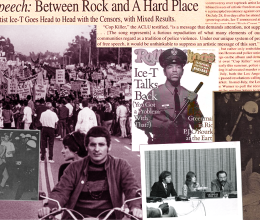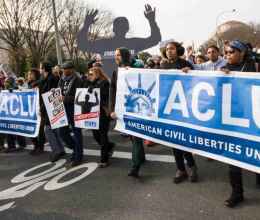The ACLU of Southern California won a key victory this week in its challenge to the Constitutionality of California Penal Code フ_148 6, which makes it a misdemeanor to knowingly file a false allegation of misconduct against a peace officer. The statute has frequently been used to discourage people from filing complaints, as it was in the case of La France Hamilton, an African American man who was attacked by police officers last year during a bicycle traffic stop and who later tried to file a complaint at the San Bernardino Police Department. The watch commander threatened Hamilton with criminal prosecution under Section 148 6, and Hamilton decided not to file.
"This law, which was held unconstitutional by the court today, treated complaints against police officers differently from other types of complaints," said ACLU of Southern California staff attorney Dan Tokaji. "The court's ruling sends a clear message. The people have a right to complain about police abuse without fear of criminal prosecution. Mr. Hamilton's case demonstrates that when states try to create exceptions to the U.S. Constitution, they expose their residents to grave dangers and serious abuses. The law blocks citizen complaints and frustrates the mechanisms by which police are held accountable to the communities they are supposed to serve."
Judge Robert Timlin denied the City of San Bernardino's motion to dismiss portions of the ACLU's complaint, observing that, "California courts have noted the dramatic impact peace officers tend to have on the public and the great potential for social harm if power by peace officers is abused...Debate on public issues and criticism of peace officers, just as with other public officials is speech 'at the very center of the constitutionally protected area of free discussion.'"
In a similar case, Gritchen v. Collier, the ACLU of Southern California succeeded in challenging the civil twin of this statute, which allowed peace officers to make defamation claims against those who file citizen complaints against them. That decision is on appeal.
Judge Timlin found that, "Section 148 6 impermissibly discriminates on the basis of the content of the speech which it criminalizes and, therefore, facially, violates the First Amendment and the Fourteenth Amendment's Equal Protection Clause."





